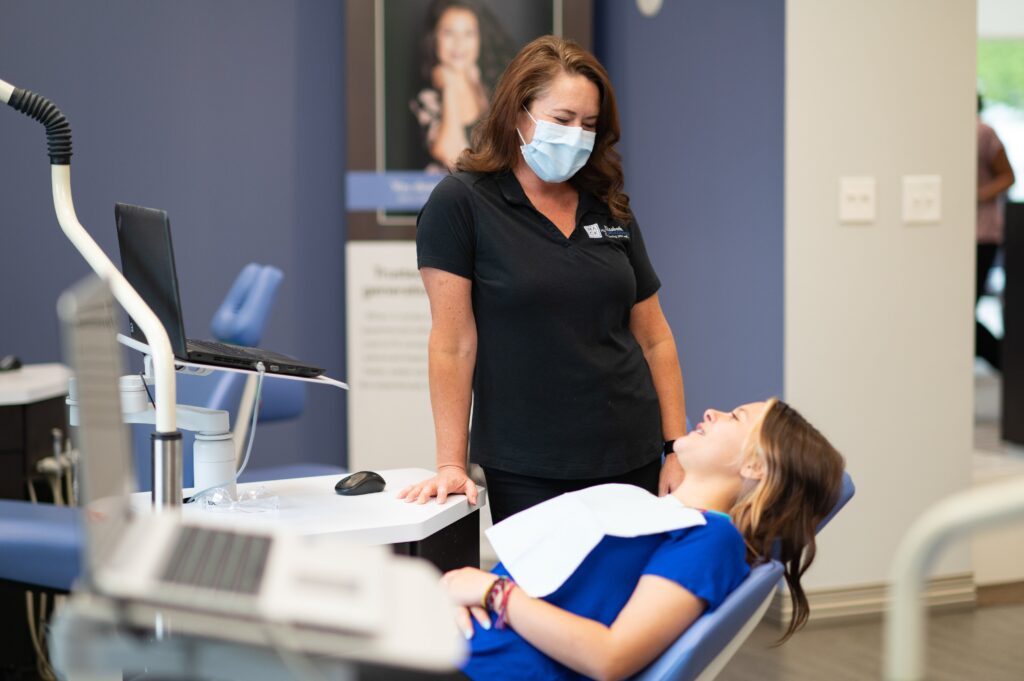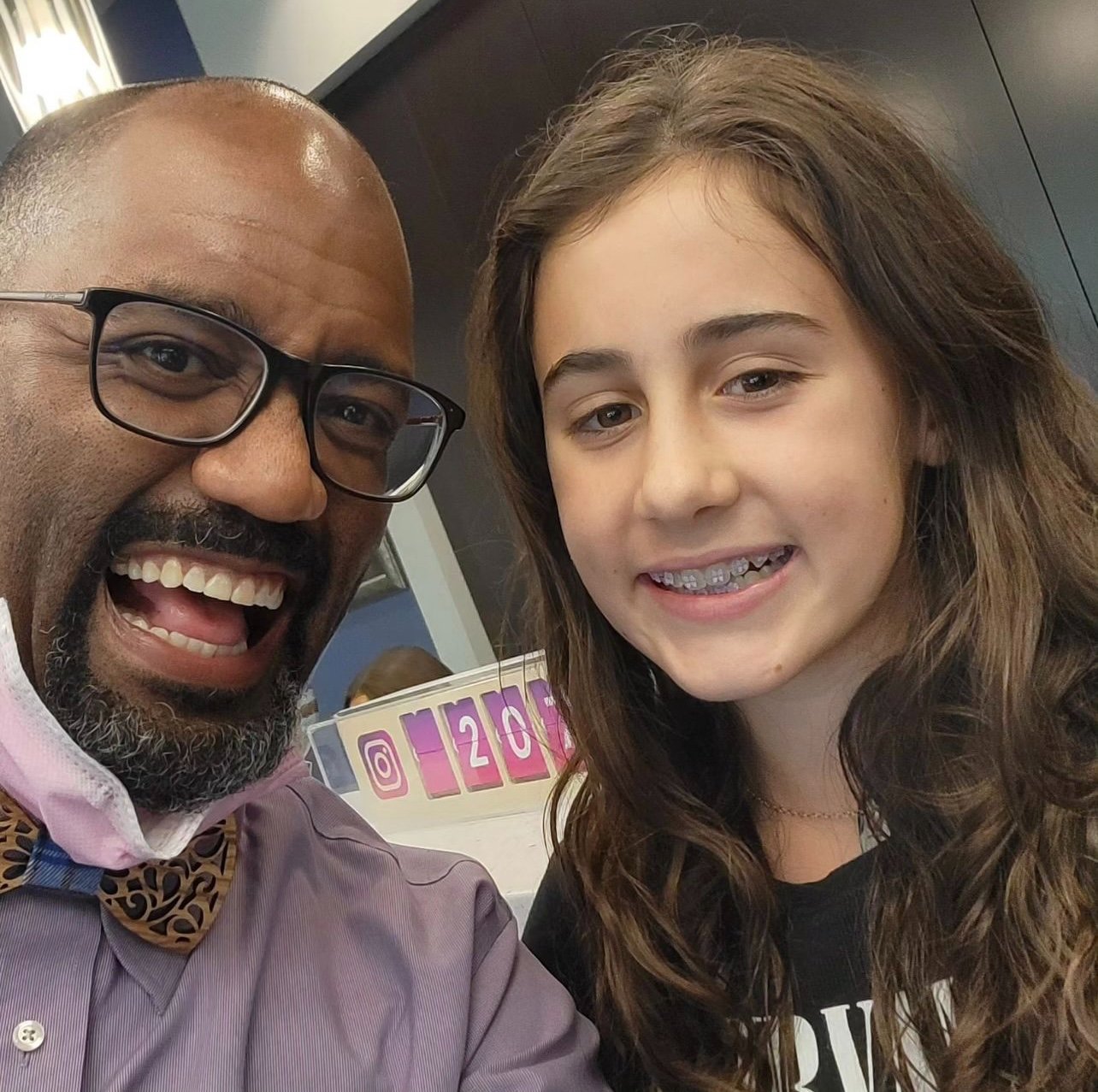Athletics can play a significant role in the lives of both students and adults alike! If you’re wondering about the implications of having braces while playing sports, Mack Orthodontics is here to answer this frequently asked question: Can I still play sports with braces?
The Parts of Braces
Knowing the components of braces can help with understanding the risk of damage. These appliances have a few key parts, all of which can be vulnerable.
- Brackets are square-shaped fixtures affixed to the front of each tooth, functioning as supports for wires.
- Wires link the brackets and exert pressure on the teeth to steer them into alignment. These wires undergo regular adjustments during treatment.
- Elastics may be affixed to the brackets to exert extra force on specific teeth. Bands, which are larger elastic components, primarily aid in jaw alignment.
Which is Which
Let’s discuss various sports, the potential risks they pose, and the role of mouthguards in preventing injuries while wearing braces.
- Contact Sports:
- Football presents a significant risk of impact and collision, underscoring the importance of wearing a mouthguard for players with braces.
- Basketball also carries the risk of collisions and frequent physical contact.
- Hockey typically provides players with full-face masks or shields for added facial and mouth protection. Nevertheless, wearing a mouthguard remains crucial, as injuries in hockey can be particularly severe.
- Combat Sports:
- Boxing and other sports involving direct blows to the mouth require the use of mouthguards.
- Martial arts disciplines like karate, taekwondo, and judo also require protection against accidental impacts and strikes.
- Non-Contact Sports
- Running poses a relatively low risk for individuals wearing braces, although wearing a mouthguard during training sessions can be smart.
- Swimming is typically safe, but it’s important to exercise caution to prevent accidents around pool edges and diving boards.
- Cycling is considered a low-impact sport, yet wearing mouthguards during races or mountain biking ventures is advisable.
- Racquet Sports
- Tennis players should consider wearing mouthguards during matches and practice sessions to mitigate the risk of impact from the ball or racquet. The velocity associated with such injuries can magnify their severity.
- Team Sports
- Soccer players may be at risk of injury from the ball or collisions with other players.
- Volleyball players may face potential injuries depending on their positions on the court.

The Right Way to Play
So, the short answer is that yes, you can play sports while wearing your braces—but it’s essential to adhere to certain guidelines to safeguard both your teeth and your braces.
- Wear a Mouthguard: Purchase a mouthguard specifically designed for athletes with braces, as they offer additional cushioning to shield you from impact. This provides protection against injuries to the lips, cheeks, tongue, and braces in the event of a blow to the face.
- Choosing the Right Mouthguard: Opt for a mouthguard specifically designed for braces, as they are tailored to accommodate the brackets and wires, ensuring a comfortable and secure fit. Standard mouthguards may not fit properly over braces and can lead to discomfort or other types of injury, so it’s best to avoid them.
- Consistent Use: Always wear your mouthguard during sports activities, including practice sessions. Accidents can occur unexpectedly, so it’s important to maintain protection at all times.
- Replace it Regularly: Regularly inspect your mouthguard for any signs of wear and tear, such as cracks or deformations. A damaged or warped mouthguard may not provide adequate protection for your teeth and braces, so it’s crucial to replace it if you notice any issues.
- Communicate with Your Coach: Make sure to communicate any concerns you have about your braces with your coach or instructor. They can adjust drills or exercises to minimize the risk of mouth injuries during physical activities.
- Be Mindful of Contact: It may be difficult to remember in the heat of the moment, but try to stay mindful of your mouth as a vulnerable area during contact. Avoid situations and maneuvers that could potentially put you at risk of injury.
For more information on selecting the appropriate mouthguard and where to acquire one, feel free to consult with Dr. Mack. He can offer personalized recommendations tailored to your specific needs and conditions.

All-Star Treatment
If you’ve recently had braces put on and live an active lifestyle as an athlete, don’t feel disheartened. Many patients successfully manage this combination, but it requires careful attention and discipline. Younger patients, in particular, may find it challenging to adhere to all the rules, which is where our expertise comes in to guide them in the right direction. If you or a family member are interested in orthodontic treatment, call our Burlington office at (336) 438-8429 or our Hillsborough office at (336) 438-8429.
